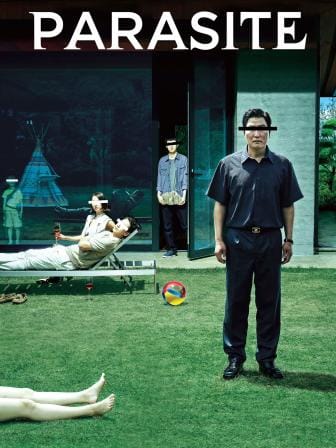Performative Inclusivity: Will ‘Everything Everywhere All at Once’ be given a fair chance?

In his acceptance speech, Bong Joon-Ho had inadvertently pointed out one of the structural flaws that the Academy Awards harbours, when he said, "Once you overcome the one-inch tall barrier of subtitles, you will be introduced to so many more amazing films''.
This declaration brought about a wave of awareness for the jury, that probably should have been a long time coming. With the iconic win of "Parasite" at the 2020 Oscars in the 'Best Picture' category, it was still unable to erase the egregious regulations that the Oscars have for submission of foreign films.

If we were to still linger upon Joon-Ho's film, it had bagged not only the 'Best Picture' award but also the win for 'Best International Feature Film'—a category previously called the 'Best Foreign Language Film', which does not function like other categories. When the first academy Awards took place in 1929, there was no category to honour foreign language films. The jury only presented honorary or special awards to foreign language films, even so not on a regular basis.
Funnily enough, one cannot on a whim submit their film at the Oscars. If yours is a foreign language film, it has to be nominated by your country. Even if multiple worthy films come from a single country, only one can be nominated. Even then, there is no confirmation that the one nominated will win. Because so far, out of the 74 awards given to foreign films from 1947, majority have been exclusively won by European countries.
Even if we are not speaking about foreign language films, over the years only one film has won Best Picture, "Parasite". It is to note that there have been multiple nominations, across all the categories but to have only one film win, does strike a bit odd. This year, the Asian-American led film, "Everything Everywhere All at Once" has headed the nominations race with 11 nominations in categories like 'Best Direction', 'Best Picture', 'Best Supporting Actor', 'Best Supporting Actress' and so on. The question here would be, how many of them are they really going to win?
Another fun and exponentially growing argument taking shape is the one around the 'Best Actress' nominations. The surprise nomination of actress Andrea Riseborough has made everyone question whether the nomination a worthy one?
This was in no way to discredit the artiste, who has a plethora of good films under her belt. However, the film that she got nominated for, "To Leslie", had only earned USD 27,000 at the US Box office. A staggeringly low number for an award of such prestige.

Rumours have suggested that the director, who is a veteran on the small screen, pulled a few favours and got his famous friends to hold private screenings of the films. Personalities who were not even aware of the film's existence, began bussing about it to their millions of Twitter fans, talking about the lead actress' skills. That definitely provided the push Riseborough needed to enter the list, pushing Viola Davis and another actress of colour aside. The Oscars' committee are now refusing to rescind Riseborough's nomination, regardless of the twisted way in which she received it.

This article had been written within the timeline of the Oscars nominations being sent out and the anticipation of the event itself. In the meantime, "Everything Everywhere All at Once" has already done exceptionally well at the Independent Spirit Awards and the Screen Actors Guild Awards.
The film and the cast have done exceptionally well, earning recognition and applause at all of the award shows so far. However, that does not stop one from being a bit scared, despite the possibility on paper of the film winning the Academy Awards, that they might still be robbed of the eventual win.

It is difficult to dole out opinions on all the categories, judging on which is best or which isn't, but the 'Best Picture' does help form a blanket conclusion. After Bong Joon-Ho's win and speech got the audience speaking about inclusivity, it still feels like foreign films and their filmmakers have not gotten the chance to break through the flimsy barrier that the jury puts them under.
The majority of films nominated this year are by Hollywood's very own. Throughout history, out of 29 foreign films—that have had the chance to break into the 'Best Director/ Best Picture' nominations—only seven have actually won. This is when Whoopi Goldberg's words from 1994 Oscars come to mind, "Tonight we gather to honour Hollywood's best, which is also the world's best".
At times, statements like these and the overall treatment of foreign films makes one think whether Hollywood is truly the best cinema has to offer and whether films from other parts of world have been treated fairly.




 For all latest news, follow The Daily Star's Google News channel.
For all latest news, follow The Daily Star's Google News channel. 
Comments